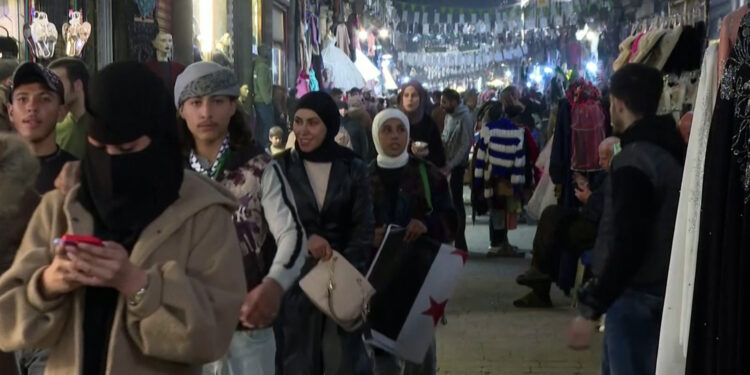Damascus – Syrian President Ahmed Al -Sharaa issued a decree to cancel all the reserve reservation decisions issued during the period between 2012 and 2024, which affected the property of thousands of Syrian citizens.
The decree, which carried No. 16 of 2025, includes the abolition of reservation decisions issued by the Ministry of Finance based on the directives of the security services during the era of the ousted President Bashar al -Assad, which was based on the provisions of Legislative Decree No. 63 of 2012, which allowed to take memorization measures on individuals ’money for security reasons.
According to the second article of the decree, the Ministry of Finance, in coordination with the Ministry of Interior and Justice, was charged with taking the necessary measures to accelerate the lifting of the reservation and implement the provisions of the decree effectively.
Lift
In a comment on the decree, the Syrian Finance Minister, Muhammad Yusr Burniyah, described the reservation decisions that were issued during the previous regime as “unfair” and not based on legal or judicial foundations, stressing that it had targeted citizens because of their political positions supporting the Syrian revolution.
The minister said that the decree expresses “the will of the state in correcting mistakes and lifting the injustice from the affected,” noting that the previous measures were deprived of about 91 thousand citizens of their property and origins.
Burniyah explained that the relevant ministries have actually started with the development of executive mechanisms to ensure the speedy lifting of the reservation and the restoration of rights, in a move aimed at “restoring economic life to normal and enhancing confidence in national institutions.”
Collective punishment
Last year, the Syrian Network for Human Rights issued a report entitled “The Syrian regime uses the precautionary seizure of funds as a collective punishment tool” through which 13 collective decisions were issued by the reserve reservation by the Syrian Ministry of Finance against at least 817 civilians, including 273 women and 12 children, in the town of Zakia in Damascus countryside, between January and June 2024.
The report, consisting of 14 pages, explained that the reservation decisions that targeted the transferred and immovable funds were based on Legislative Decree No. 63 of 2012, and to telegrams issued by the 285 branch of the General Intelligence, without any judicial procedures, and implemented with extensive security powers, which amounted to the inclusion of the money of the wives of the seized wives on their property.
In its report, the network considered that these practices represent a systematic punitive policy of a security and revenge in nature, especially against the residents of regions that were subjected to “settlement” agreements with the previous regime as a Zakia town, noting that the most targeted groups included forcibly disappeared and displaced internally and externally and people who made security settlements.



